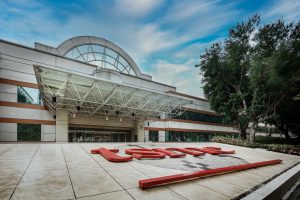Popular Keywords
- About Us
-
Research Report
Research Directory
Semiconductors
LED
Consumer Electronics
Emerging Technologies
- Selected Topics
- Membership
- Price Trends
- Press Center
- News
- Events
- Contact Us
Japan
News

[News] Micron Reportedly Set to Build New DRAM Plant in Hiroshima, Japan, Operational Expected by End of 2027
According to a report from a Japanese media outlet The Daily Industrial News, it reported that Micron Technology plans to build a new plant in Hiroshima Prefecture, Japan, for the production of DRAM chips, aiming to begin operations as early as the end of 2027. The report estimates the total inve...
News

[News] Amid Growing HBM Demand, SK Hynix Chairman Reportedly Considers Production in Japan and the US
According to a report by Nikkei News, SK Hynix is considering expanding its investment to Japan and the US to increase HBM production and meet customer demand. Reportedly, the demand for high-bandwidth memory (HBM) is surging thanks to the AI boom. SK Group Chairman and CEO Chey Tae-won stated ...
News

[News] A Subsidy Wave Sweeping in the US, Europe and Japan amid the Cut-Throat Chip Competition
According to Bloomberg, mega economies like the US and the EU have invested tens of billions of dollars in the research and mass production of next-generation semiconductors, and notably, this is only the initial amount of funding already received. Meanwhile, South Korea and Japan have also joine...
News

[News] TSMC Says Tripling 3nm Capacity This Year Still Not Enough
According to a report from TechNews, TSMC held a technology forum on May 23, where Senior Fab Director pointed out that benefiting from HPC and mobile phone demands, the 3nm production capacity this year has more than tripled compared to last year, but this is actually still not enough, so efforts a...
News

[News] Rapidus Partners RISC-V Player Esperanto, Targeting Low-Power AI Chip
On May 16, Japanese foundry startup Rapidus announced the signing of a Memorandum of Understanding (MoU) with American RISC-V architecture chip design company, Esperanto. The two sides will collaborate on the research and development of AI semiconductors for data centers, aiming to jointly develop l...
- Page 13
- 22 page(s)
- 109 result(s)





